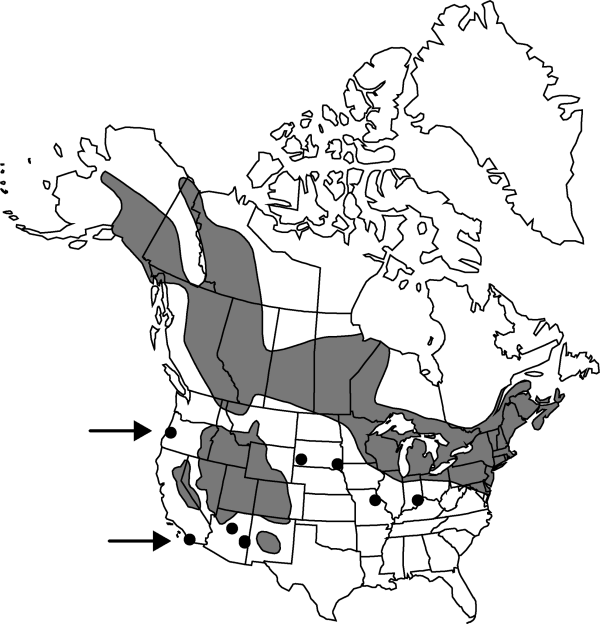Chenopodium capitatum
Fl. Tirolo Mer. 2: 180. 1857.
Stems erect to ascending or decumbent, branched from base, 1.5–10 dm, glabrous. Leaves non-aromatic; petiole 1.5–10 cm; blade lanceolate, ovate, triangular, or triangular-hastate, 2.5–10 × 1–9 cm, base cuneate, truncate, or hastate, margins sharply dentate or entire, apex acute to acuminate. Inflorescences glomerules sessile on unbranched terminal spikes; spikes 5–20 cm; glomerules globose, 3–10 mm diam.; bracts leaflike, present only at base of inflorescence; flowers maturing from apex to base. Flowers: perianth segments 3, connate only at base, lobes lanceolate to ovate, 0.6–0.9 × 0.4–0.5 mm, apex acute, not keeled, glabrous, covering fruit at maturity, often becoming fleshy and red in fruit; stamens 3; stigmas 2, 0.1–0.4 mm. Achenes ovoid, fleshy or not; pericarp adherent, bright red to dark reddish brown or greenish red, smooth. Seeds 0.7–1.2 mm in diam., margins rounded; seed coat black, reticulate-punctate. 2n = 18.
Distribution

North America, introduced in Eurasia.
Discussion
Varieties 2 (2 in the flora).
Selected References
None.
Key
| 1 | Glomerules fleshy, red, 6-10 mm diam. in fruit; leaf blades truncate to cordate at base, margins usually strongly toothed | Chenopodium capitatum var. capitatum |
| 1 | Glomerules membranaceous, often red, 3-5 mm diam. in fruit; leaf blades cuneate to truncate at base, margins somewhat toothed or entire | Chenopodium capitatum var. parvicapitatu |